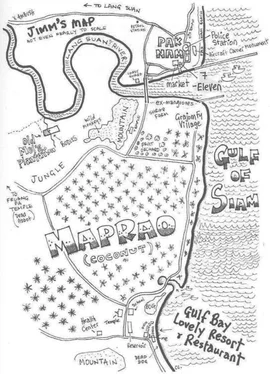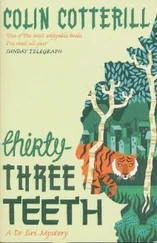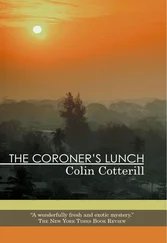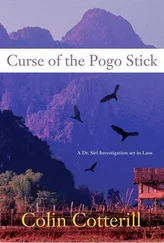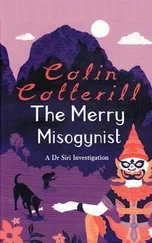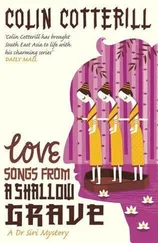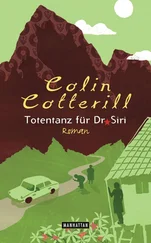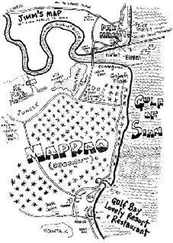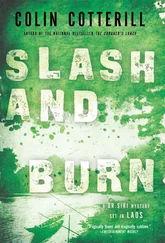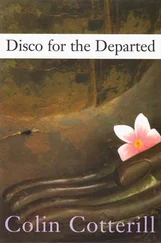Colin Cotterill - Grandad, Thereэ's head on the beach
Здесь есть возможность читать онлайн «Colin Cotterill - Grandad, Thereэ's head on the beach» весь текст электронной книги совершенно бесплатно (целиком полную версию без сокращений). В некоторых случаях можно слушать аудио, скачать через торрент в формате fb2 и присутствует краткое содержание. Жанр: Криминальный детектив, на английском языке. Описание произведения, (предисловие) а так же отзывы посетителей доступны на портале библиотеки ЛибКат.
- Название:Grandad, Thereэ's head on the beach
- Автор:
- Жанр:
- Год:неизвестен
- ISBN:нет данных
- Рейтинг книги:3 / 5. Голосов: 1
-
Избранное:Добавить в избранное
- Отзывы:
-
Ваша оценка:
- 60
- 1
- 2
- 3
- 4
- 5
Grandad, Thereэ's head on the beach: краткое содержание, описание и аннотация
Предлагаем к чтению аннотацию, описание, краткое содержание или предисловие (зависит от того, что написал сам автор книги «Grandad, Thereэ's head on the beach»). Если вы не нашли необходимую информацию о книге — напишите в комментариях, мы постараемся отыскать её.
Grandad, Thereэ's head on the beach — читать онлайн бесплатно полную книгу (весь текст) целиком
Ниже представлен текст книги, разбитый по страницам. Система сохранения места последней прочитанной страницы, позволяет с удобством читать онлайн бесплатно книгу «Grandad, Thereэ's head on the beach», без необходимости каждый раз заново искать на чём Вы остановились. Поставьте закладку, и сможете в любой момент перейти на страницу, на которой закончили чтение.
Интервал:
Закладка:
"Can you confirm that it's seven fifteen?" I said.
He raised his splendid diver's watch and said, "Yes."
"Thank you," I said and snapped his photo.
"For what?"
"For completing the interview," I said.
"What interview?"
"Yours."
I held up the cell phone for him to see his photograph.
"You weren't…?"
"Recorded every word," I said. "Sorry. I'd already reported the head to Thai Rat newspaper. They wanted me to go through the official channels to see how the system worked. I'll just have to tell-"
"Wait!" he said, glaring at my phone as if it was loaded and pointed at his head. "You mean a human head?"
I had to laugh. I heard a cluck. As the chickens were dead, I assumed it had come from Beung's wife.
"Don't bother, Beung," I said. "I'm not recording anymore."
Beung looked concerned, but I've learned from experience that sleazeballs don't get violent. They slime their way out of trouble.
"My sweet little Nong Jimm," he said. "How long have we been friends?"
I was about to say "Never," but he didn't give me the chance.
"This is clearly a misunderstanding brought about by our different cultures," he said. "North meets south. Language difficulties. Only to be expected."
I was certain we'd been speaking central Thai together. He winked at me and reached for his cell-phone-on-a-string hidden among the amulets dangling from his neck. He speed-dialed and I could hear John Denver's "Take Me Home" as he waited in a queue. Once he was connected, he said just two words, "Code M."
But then again I suppose M isn't a word. I rode Mair's bicycle back along the beach road and smiled to myself. Clever me. I knew there were cell phones with recording functions, but I didn't have one of those.
We were having breakfast when the head-collection service began. We hadn't told Mair about it. It might have meant nothing to her, but she was in a delicate state. A few years earlier she'd started to be overwhelmed by numbers and names and sequences of events. There were times when details of our family fluttered back and forth like candle-charred moths. She'd call me Sissi and start talking about the operation that had turned me from male to female. She'd see our long departed, virtually unknown father in the face of Grandad Jah and begin embarrassing anecdotes we had to nip in the bud. She regularly put on odd shoes and told us it was a fashion statement, and she was convinced those little packets of preservatives they put in food were condiments. She'd eaten so many she'd likely live to 150. The fact that these lapses were rare and that for long periods she would be the normal, caring person we loved, only served to make her condition all the more frustrating. We'd forget that this other person lived inside her. We were sure it wasn't the actual Mair that had sold our family home in Chiang Mai and relocated us to this embarrassing five-cabin bungalow. Five banana-leaf gazebo tables. One half-empty shop. Dirty beach. Warm, jellyfish-infested water. We'd left real lives, careers, dreams to come with her because we knew she'd perish by herself. I left the newspaper. Brother Arny deserted his ambition to be the bodybuilding god of Thailand. Grandad Jah…well, he didn't leave anything, but he was just as peeved as the rest of us because peeved was his natural state. Only Sissi had overcome filial responsibility and remained behind.
November blew in annoying winds from the northeast. They kicked up sand and whipped the salt off the surf. So my little brother Arny had made walls of green plastic gauze on three sides of the restaurant gazebo. We lost our view of the ocean and the bay, of course, but the novelty of living on the coast had long since worn off. We did, however, have a splendid view of the car park while we ate.
"We have generals," said Mair.
I looked up to see a truck parking in front of our shop and two men in military uniforms stepping out. The growl of the surf had blotted out their arrival.
"That's Bigman Beung, Mair," I said. "The village headman. And Pot from the bicycle repair shop."
"But they have medals."
"Ribbons, Mair. You buy them with the uniform. They're stitched on. Means nothing."
"They look so elegant." She smiled. "I do love a man in uniform. Have I ever told you about my fling with the fighter pilot?"
"Yes," we all said.
"He had such a peculiarly shaped-"
"YES," we said again.
"Why are they here, do you suppose?" she asked.
"Beach inspection," I told her. "Looking for evidence to nail the households that throw their garbage in the river. Utilities bills. Photographs. Identifiable body waste for DNA testing."
My lie was backed up by the arrival of a dirty cream and brown truck from which stepped a police officer I'd never seen before. He was overweight and wore a toupee so obvious that it could have just been blown onto his head by the gales. It had been two months since my last official dealings with the Pak Nam police, and I knew that during that time a dozen officers would have come and gone. It was like a TV sitcom. You had your regulars who couldn't leave: Major Mana because he had a thriving Amway direct-sales dealership here; Sergeant Phoom and constables Ma Yai and Ma Lek because they were born and grew up and raised families here and refused to leave; and my own darling Lieutenant Chompu because nobody else wanted him. But all the other actors were on their way to and from elsewhere: transfers, probationary placements, demotions, punishment. Pak Nam was one of those places to which they sent disreputable officers officially "transferred to inactive posts." Pak Nam was the perfect location in which to be inactive. In fact, there were long periods, months even, when it was unavoidable.
A third vehicle pulled up beside the police truck and filled our car park. It was a huge black SUV with a roll bar garnished with a stack of lights. On its doors was a familiar sticker: the rear view of a heroic man in overalls with a voluptuous but unconscious woman draped in his arms. Whenever I saw that logo, I had an urge to throw up. This was the symbol of the national rescue foundations-in our case those bold men of the SRM, the Southern Rescue Mission Foundation. Supposedly a charitable organization whose duty it was to facilitate the journey of the soul to a better place. First at the scene of accidents, murders, and suicides. There are those of us who see the men of the SRM as bloodsucking, money-grubbing, cold-hearted vultures. Charity is good business in Thailand. The missions often receive large sums of money in donations, find themselves bequeathed entire estates in wills. So being the first at the scene, getting there before any other foundation is, in my mind, a financial rather than a spiritual necessity. I'd been at accidents where two foundations were going at each other with tire irons while the victims bled to death on the road. I've seen foundation workers checking a pulse over and over at the scene of a drug overdose. A dead body, you see, is worth more bonus points than delivering victims to a hospital. Heaven forbid they should survive. Yet so vital have these goons become to the industry of death, the police no longer find it necessary to get their hands bloody. The collection and dispatch of bodies is left entirely to the foundations.
The two dark-skinned men who climbed down from the SUV looked like Socrates and Ben, the rats from the movie Willard. They were dark and gristly. They joked with the policeman and nodded at our Coastal Alert Force. I'd told Beung that the head was to be found beneath the leaning palm, so they didn't ask me to accompany them as they walked down to the sand together. They began picking their way through the garbage, then became a blur as they passed behind our gauze.
"They're very diligent," said Mair.
Читать дальшеИнтервал:
Закладка:
Похожие книги на «Grandad, Thereэ's head on the beach»
Представляем Вашему вниманию похожие книги на «Grandad, Thereэ's head on the beach» списком для выбора. Мы отобрали схожую по названию и смыслу литературу в надежде предоставить читателям больше вариантов отыскать новые, интересные, ещё непрочитанные произведения.
Обсуждение, отзывы о книге «Grandad, Thereэ's head on the beach» и просто собственные мнения читателей. Оставьте ваши комментарии, напишите, что Вы думаете о произведении, его смысле или главных героях. Укажите что конкретно понравилось, а что нет, и почему Вы так считаете.
